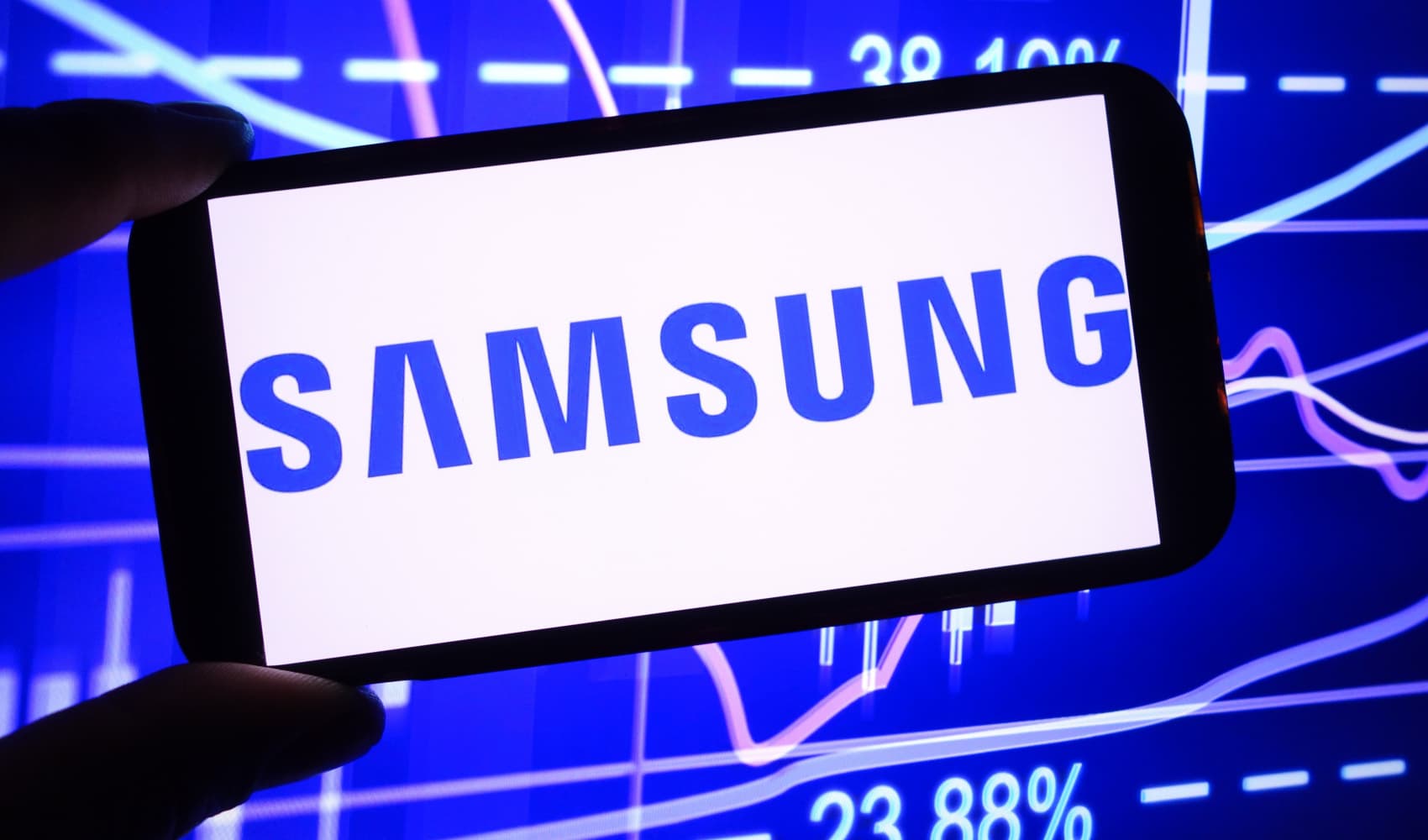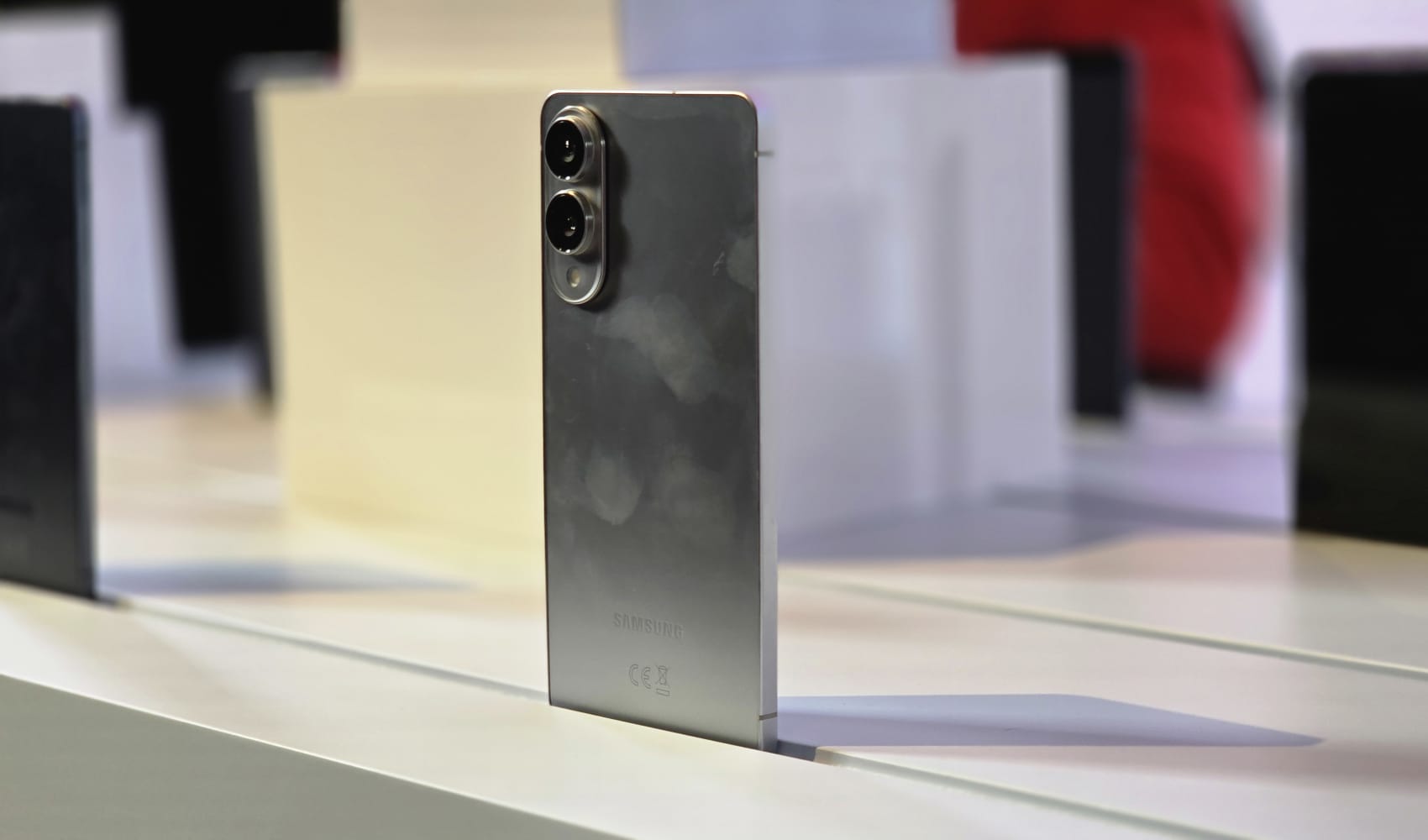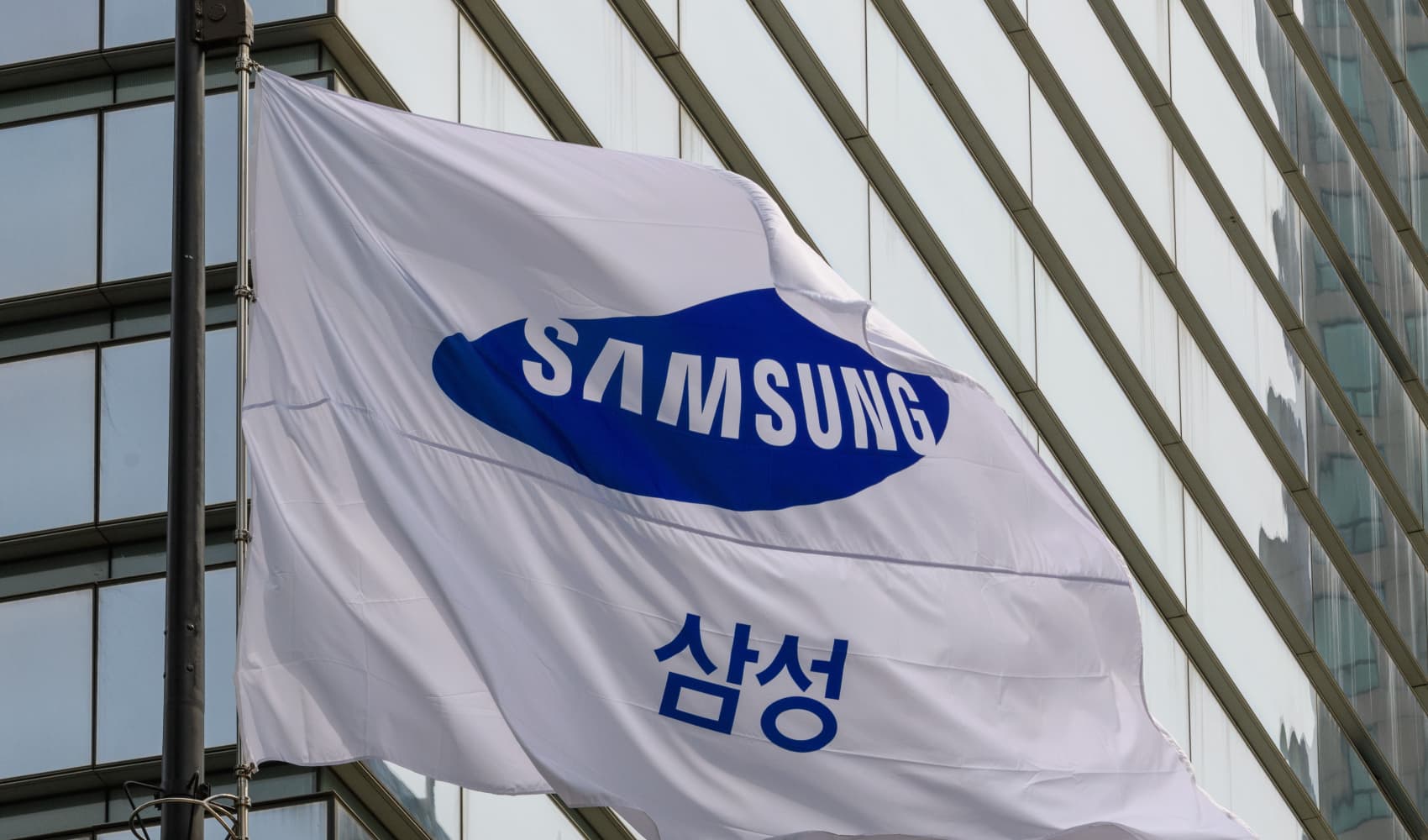Samsung Defies Odds: Q1 Results Beat Expectations!
Samsung Defies Economic Headwinds: Smartphone & Chip Sales Soar!
Introduction: A Tale of Two Trends
In a world where economic uncertainty hangs heavy, there are always companies that manage to shine. Think of it like a lighthouse in a storm, guiding ships safely to harbor. One such beacon? Samsung Electronics. The tech giant recently announced its quarterly results, and let's just say, the numbers tell a compelling story. Despite swirling economic anxieties, Samsung's smartphone and chip sales have powered the company to a better-than-expected performance. How did they pull it off? Let's dive in and dissect the details.
Samsung's Q1 2024: A Numbers Game
Samsung's first-quarter results are in, and they're not just good; they're record-breaking. We're talking about a 10% jump in revenue compared to last year and a 1.5% increase in operating profit. That's like hitting a grand slam when you're down by three in the bottom of the ninth. Let's break down the key figures:
Revenue and Operating Profit Highlights
- Revenue: 79.1 trillion Korean won ($55.4 billion) – exceeding both last year's figures and Samsung's initial forecast of 79 trillion won.
- Operating Profit: Climbed 1.5% year-over-year, also surpassing the company's expectations of 6.6 trillion Korean won.
So, what does all this mean? It means Samsung is doing something right, even when the global economy isn't exactly cooperating.
Smartphone Sales: Riding the Wave of Innovation
Smartphones are the lifeblood of Samsung's consumer electronics division, and this quarter, they delivered in spades. New models with innovative features attracted customers, boosting sales and overall profitability. Is it the foldable screen technology? The cutting-edge camera systems? Or perhaps the sleek design that has customers lining up to upgrade? It's likely a combination of all these factors.
Flagship Models Lead the Charge
Samsung's flagship smartphones, such as the Galaxy S series and foldable Z series, continue to be major revenue drivers. These phones aren't just devices; they're status symbols, packed with features that appeal to tech enthusiasts and everyday users alike.
Chip Sales: A Memory Maker's Moment
Beyond smartphones, Samsung is also a major player in the memory chip market. And guess what? Chip sales also saw a significant boost in Q1. This is crucial because memory chips are essential components in everything from smartphones and computers to data centers and automobiles.
The Demand for Memory: A Growing Trend
The increasing demand for memory chips is driven by several factors, including the growth of cloud computing, artificial intelligence, and the Internet of Things (IoT). As more devices become connected and generate data, the need for storage and processing power increases exponentially. Samsung is well-positioned to capitalize on this trend.
The Uncertain Economic Climate: A Looming Shadow
Now, let's address the elephant in the room: the "uncertain economic climate." Samsung itself has flagged this as a potential challenge. This uncertainty stems from a variety of factors, including inflation, rising interest rates, geopolitical tensions, and supply chain disruptions. It’s like navigating a ship through choppy waters; you need to be extra careful and prepared for unexpected turbulence.
How Does Economic Uncertainty Affect Samsung?
Economic downturns can impact consumer spending, leading to lower demand for electronics. Businesses might also cut back on investments in technology, affecting chip sales. The key is for Samsung to navigate these challenges by maintaining a strong product portfolio, controlling costs, and adapting quickly to changing market conditions.
Analysts' Estimates vs. Reality: A Pleasant Surprise
Before the results were announced, analysts had their predictions for Samsung's performance. And while they weren't necessarily pessimistic, Samsung's actual results managed to surpass expectations. This is like watching your favorite team pull off an unexpected victory against a tough opponent. It's a testament to Samsung's resilience and ability to innovate.
Strategies for Success: What's Samsung Doing Right?
So, what's Samsung's secret sauce? How are they managing to thrive despite the economic headwinds? Here are a few key strategies:
Focus on Innovation
Samsung is constantly pushing the boundaries of technology, developing new and improved products that capture the attention of consumers. Think about their foldable phones, the evolution of their camera technology, or the continuous improvement of their display quality. It’s a race, and Samsung is determined to stay ahead.
Diversification of Products
By offering a wide range of products, from smartphones and TVs to memory chips and appliances, Samsung reduces its reliance on any single market. This diversification helps them weather economic storms more effectively.
Global Reach
Samsung operates in virtually every corner of the world, giving them access to a vast customer base. This global presence allows them to offset declines in one region with growth in another.
Looking Ahead: Challenges and Opportunities
What does the future hold for Samsung? While the company has demonstrated its resilience, it still faces challenges. The economic climate remains uncertain, and competition in the electronics industry is fierce. However, Samsung also has significant opportunities. The demand for advanced memory chips is expected to continue growing, and new technologies like 5G and AI are creating new markets.
Navigating the Semiconductor Landscape
The global semiconductor landscape is constantly evolving. New players are emerging, and existing companies are vying for market share. Samsung needs to continue investing in research and development to maintain its competitive edge in the chip market.
The Impact of Geopolitical Factors
Geopolitical tensions can also have a significant impact on Samsung's business. Trade disputes, supply chain disruptions, and political instability can all affect the company's operations and profitability. Samsung needs to carefully monitor these factors and adapt its strategies accordingly.
Samsung's Role in the South Korean Economy
Samsung is a vital part of the South Korean economy. The company is one of the country's largest employers and exporters. Its success has a ripple effect, benefiting other businesses and industries in South Korea. When Samsung thrives, South Korea thrives. It's a symbiotic relationship.
The Future of Mobile Technology: Samsung's Vision
What does the future of mobile technology look like? Samsung is actively shaping that future with its innovations in areas like foldable displays, 5G connectivity, and artificial intelligence. They are not just reacting to trends; they are creating them.
Sustainability Initiatives: A Growing Priority
Like many companies, Samsung is increasingly focused on sustainability. The company is investing in renewable energy, reducing its carbon footprint, and developing more eco-friendly products. This is not just good for the environment; it's also good for business, as consumers are increasingly demanding sustainable products.
Consumer Trends and Preferences: Staying Ahead of the Curve
Understanding consumer trends and preferences is crucial for Samsung's success. The company invests heavily in market research to identify emerging trends and anticipate future demand. This allows them to develop products that resonate with consumers and meet their evolving needs. It's all about knowing what people want before they even know it themselves.
Conclusion: Resilience in the Face of Uncertainty
Samsung's recent quarterly results are a testament to the company's resilience and ability to navigate challenging economic conditions. By focusing on innovation, diversifying its product portfolio, and maintaining a global presence, Samsung has managed to outperform expectations and deliver strong financial performance. While the uncertain economic climate remains a concern, Samsung is well-positioned to continue thriving in the years ahead. The key takeaways are: strong smartphone sales, growing chip demand, and a proactive approach to economic challenges. This is more than just a financial report; it's a story of adaptation, innovation, and leadership.
Frequently Asked Questions (FAQs)
- What were the main drivers of Samsung's strong Q1 2024 results?
Strong sales of flagship smartphones and increased demand for memory chips were the primary factors driving Samsung's positive financial performance.
- How is the uncertain economic climate affecting Samsung's business?
Economic uncertainty can impact consumer spending and business investments, potentially leading to lower demand for electronics and chips. Samsung is actively managing these risks by controlling costs and adapting to changing market conditions.
- What strategies is Samsung employing to maintain its competitive edge?
Samsung is focusing on continuous innovation, diversifying its product portfolio, and maintaining a strong global presence to stay ahead of the competition.
- What is Samsung's role in the South Korean economy?
Samsung is a major contributor to the South Korean economy, serving as one of the country's largest employers and exporters, and its success benefits other industries in the region.
- What sustainability initiatives is Samsung undertaking?
Samsung is investing in renewable energy, reducing its carbon footprint, and developing more eco-friendly products to promote environmental sustainability.


